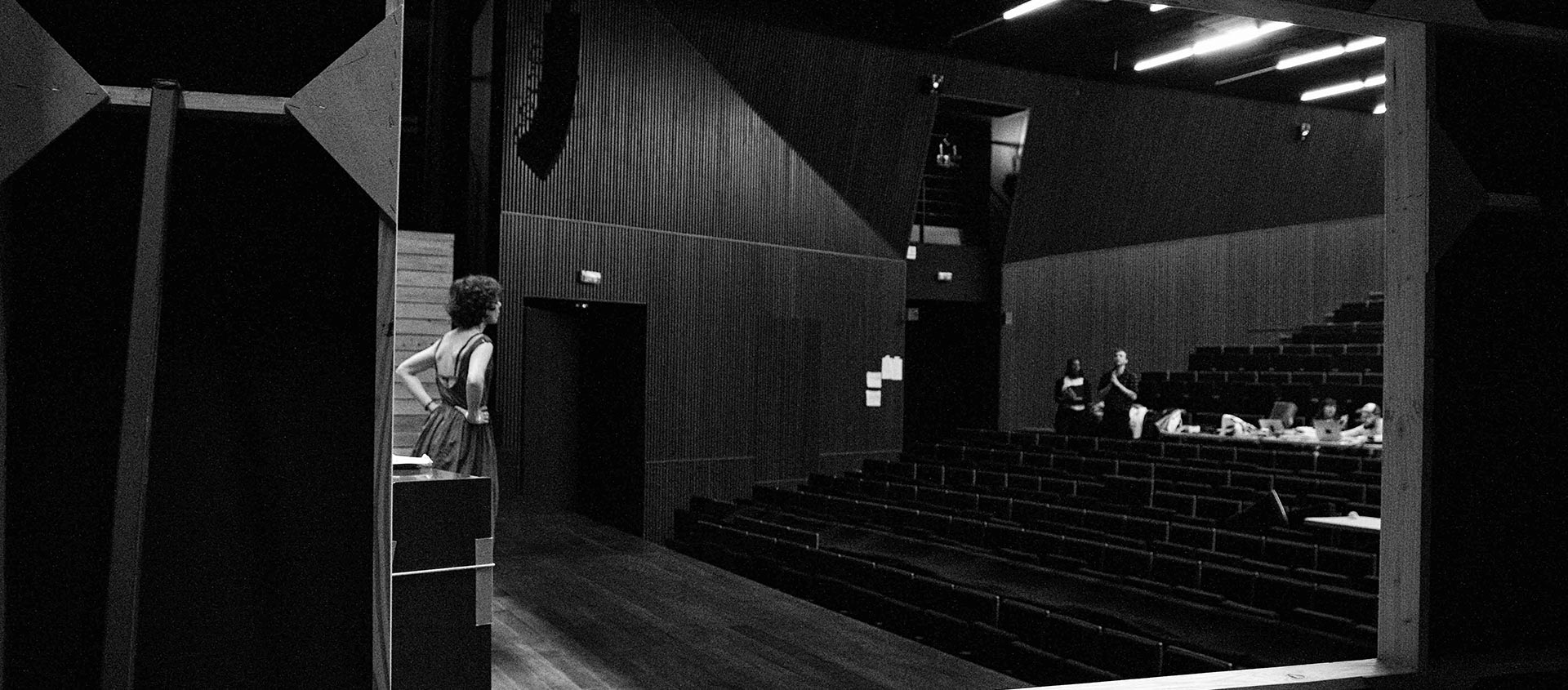
The company
About
In 2009 David Geselson founded Compagnie Lieux-Dits. Lieux-Dits is primarily concerned with the creation of contemporary texts and experimental works for the theatre. The junction between fiction and non-fiction is at the heart of its work. The tension between the power of politics to intimately affect and transform individuals, and the way in which they can then transform history in their turn, is a common thread in its productions. At the centre of its vision, is a powerful dynamic between a writer and a team of actors focused on creating texts and works for the theatre that tackle current political, philosophical and poetic issues.
Compagnie Lieux-Dits is accredited by the ministère de la Culture – DRAC île-de-France and the Val-de-Marne department as part of its development aid.
Compagnie Lieux-Dits I David Geselson is associated to the Théâtre-Sénart, scène nationale – direction Caroline Simpson Smith.
Compagnie Lieux-Dits is member of ARVIVA, whose mission is to examine the everyday practices of the performing arts professions in order to identify sustainable alternatives to reduce the sector’s environmental impact, looking at all the links in the chain, from artistic creation to communication and from production to touring.
Read the Lieux-Dits company’s eco-responsible charter.
David Geselson
Biographie
David Geselson is an actor, writer, and director.
He wrote, directed, and performed in Doreen (2016) – awarded the Best Creation in French Language 2017 by the Syndicat de la Critique – inspired by Letter to D. by André Gorz, En Route-Kaddish (2014), Unwritten Letters (2017), and Neandertal (2023) which premiered at the 77th Festival d’Avignon. He also wrote and directed Silence and fear (2020).
He directed Eli Eli by Thibault Vinçon, Les Insomniaques by Juan Mayorga, and Poings by Pauline Peyrade at the Teatro Español in Madrid. At the invitation of MC93, David Geselson directed A Play for the Living in a Time of Extinction, based on Katie Mitchell’s proposal, in March 2024 as part of the European project STAGES.
In the 24.25 season, he will recreate Doreen in Taipei with a Taiwanese team at the invitation of the National Theater and Concert Hall of Taipei. In the 25.26 season, he will direct his first opera, La Bohème, at the invitation of the Opéra de Nancy.
He published Lettres non-écrites (Unwritten Letters) at Le Tripode in March 2021, winer of 2022 First novel discovery by le Syndicat des Gens de Lettres.
His other plays are published at Lieux-Dits.
As an actor, he worked several times under the direction of Tiago Rodrigues, he was in Choeur des amants created in 2021, in La Cerisaie by Anton Tchekhov created at Festival d’Avignon 2021, and in Bovary created in 2016 at théâtre de la Bastille.
He was trained at the École du Théâtre National de Chaillot, the École de théâtre « Les Enfants Terribles » and the Conservatoire national supérieur d’art dramatique.
He performed under the direction of Brigitte Jaques in La Marmite (Plautus’ Aulularia), Cécile Garcia-Fogel in Foi, Amour, Espérance (Odön Von Horváth’s Faith, Love and Charity), Gilles Cohen in Théâtre à la campagne by David Lescot, David Girondin-Moab and Muriel Trembleau in Le Golem (a stage adaptation of Gustav Meyrink), Christophe Rauck in Le Revizor (Nikolai Gogol’s The Government Inspector), Gabriel Dufay in La Ville (Yevgeni Grishkovetz), Jean-Pierre Vincent in Meeting Massera by Jean-Charles Massera, Volodia Serre in Les Trois Soeurs (Anton Chekhov’s Three Sisters), Juliette Navis and Raphaèle Bouchard in a collective work entitled Mont-Royal, and Jean-Paul Wenzel in Tout un homme.
He worked also for television and cinema, for example with Elie Wajeman in Alyah and Les Anarchistes (Quinzaine des Réalisateurs – Cannes 2012 and Semaine de la critique – Cannes 2015 ), François Ozon in Grâce à Dieu, Isabelle Czajka in La Vie domestique, Olivier de Plas in QI, Rodolphe Tissot in Ainsi-soit-il (seasons 2 and 3), Vincent Garanq in l’Enquête, as well as in short films directed by Muriel Cravatte, Antonin Peretjatko, Marie Donnio and Etienne Labroue.



